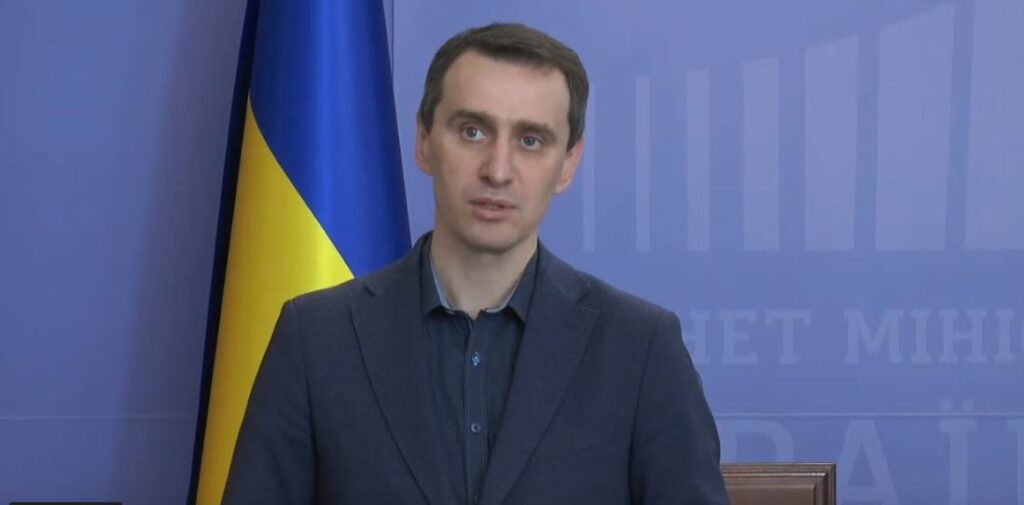
From July 1, Ukrainians will face another change. This will affect both patients, pharmacists and doctors.
Starting July 1, Affordable Drugs will be e-prescription only
From July 1, the NHSU will reimburse drugs under the “Affordable Medicines” reimbursement program only by electronic prescription. The exception will be active war zones and areas of temporary occupation.
From July 1, the NHSU will reimburse drugs under the “Affordable Medicines” reimbursement program only by electronic prescription. The exception will be zones of active hostilities and territories of temporary occupation. The corresponding amendments to the CMU resolutions No. 136 of February 27, 2019 and No. 854 of July 28, 2021 were recently adopted by the Government.
In the zone of active hostilities and territories under temporary occupation, doctors will continue to be able to write paper prescriptions for Affordable Drugs to patients and pharmacies will be able to reimburse them. To receive reimbursement, pharmacies must submit a paper prescription report to NHTSA within 10 calendar days of the next reporting period.
In the rest of Ukraine, the Electronic Health Care System is operating normally. Therefore, doctors can smoothly create electronic prescriptions and patients can redeem them in pharmacies.
As a reminder, at the patient’s request, the doctor can print out an information note that will contain prescription information. Therefore, people who have difficulty using the telephone will be able to use the Affordable Drug Program in the future.
“Affordable Medicines” has been dispensed by electronic prescription since 2019, since the program came under the administration of the NHIS. At the start of the full-scale war, the Government authorized the prescribing and dispensing of Affordable Drugs on a paper prescription for easy access to life-saving medicines.
We will remind, Ukrainians can receive “Affordable medicines” free of charge or with a partial surcharge on referrals:
- cardiovascular disease,
- type II diabetes,
- chronic lower respiratory tract diseases (including bronchial asthma),
- insulin-dependent and non-sugar diabetes,
- Parkinson’s disease,
- mental and behavioral disorders,
- epilepsy,
- immunosuppressive drugs for people in the post-transplant period.
Since the beginning of the year, 1,538,202 patients have received Affordable Drugs by e-prescription:
- cardiovascular diseases, type II diabetes, lower respiratory diseases – 1,392,066 people.
- Insulin free or with copayment – 165,403 people
- Behavioral and mental disorders and epilepsy – 21,864 people
- Parkinson’s disease – 10,679 people
- non-sugar diabetes – 1,676 people
- immunosuppressive medicines – 276 persons
Starting July 1, the EHR will include data on the category of insulin-dependent patients
To ensure more correct and efficient prescription of insulin and its further reimbursement under the reimbursement program, starting July 1, the treatment plan for insulin-dependent patients will be obligatory to specify the category of such patients.
It will be determined on the basis of clinical evaluation data. That is, doctors will begin to record in the EHR electronic medical records on the assessment of insulin-dependent patients on the basis of the patient’s examination, available electronic medical records, analysis of his medical history, documentation and the like. This was reported by the Ministry of Health.
Who’s creating the record?
An endocrinologist creates the clinical evaluation record for the insulin-dependent patient category. During martial law, this function may also be performed by a primary care physician when prescribing insulin to patients.
In the future, the treating physician will refer to the clinical evaluation record when creating an insulin prescription under the reimbursement program in the patient’s treatment plan. This requirement is mandatory and is stipulated in the Procedure for Reimbursement of Medicinal Products.
How will this affect the treatment process?
The innovation will not affect the patient’s treatment process, the process of obtaining insulins by prescription does not change either.
At the same time, it should be noted that by July 1, physicians should undergo appropriate training and start actively using the clinical evaluation functionality in EHR to gain the necessary practice and experience.
In order to prepare for the changes in time and improve their skills, they can take a training course on working with the new functionality in EHR on the platform of the Academy of NHSI.
In addition, as we wrote, until July 1, Ukraine should approve a capable network of medical institutions.


